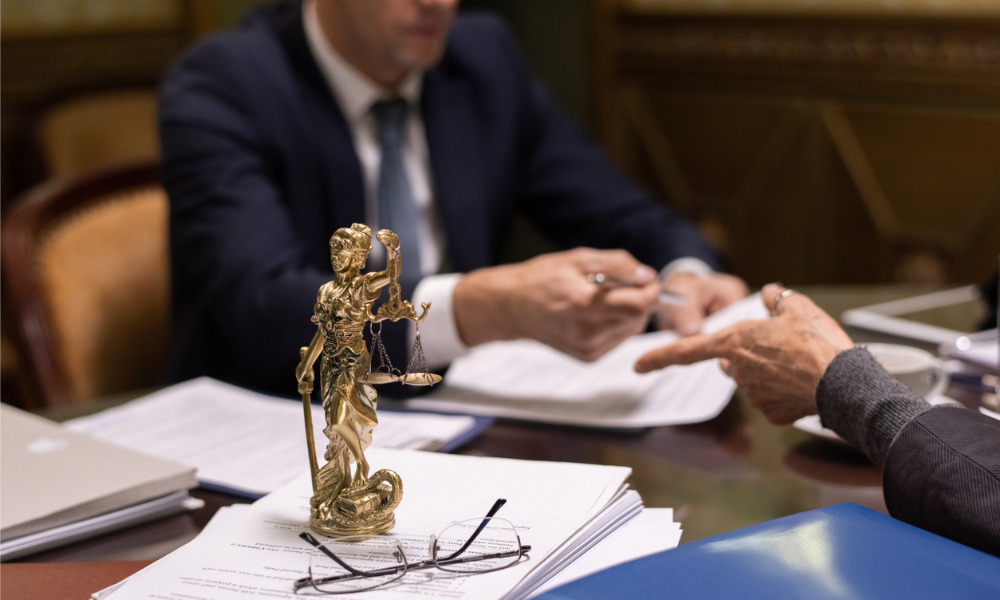
The lawyer, who had served a 15-month suspension, had made false allegations against judges

The High Court has rejected the recall application of a lawyer found guilty of misconduct for making false allegations against two judges.
In 2016, the Lawyers and Conveyancers Disciplinary Tribunal (LCDT) found Francisc Deliu guilty of misconduct and suspended him from legal practice for 15 months. The LCDT found Deliu had made allegations against two judges that were false or without any sufficient foundation.
Deliu brought two appeals and one judicial review to the High Court, challenging the LCDT's decisions on his liability and penalty. Judge Hinton, who heard Deliu's appeals and judicial review, rejected them and ordered Deliu to pay costs to the New Zealand Law Society. Judge Hinton also declined Deliu's leave to appeal to the Court of Appeal.
In Deliu v National Standards Committee [2023] NZHC 1184, Deliu brought an application to the High Court to recall Judge Hinton's judgements, arguing that there was a reasonable apprehension that the judge was biased. Deliu also claimed that the LCDT acted ultra vires. The Standards Committees who prosecuted Deliu opposed the application. They asserted that the court had already determined in its other decisions the issues Deliu raised, so he is estopped from ventilating them again on his recall application.
The High Court noted that it may recall an unsealed judgment if, "for some other very special reason, justice requires that the judgment be recalled." Deliu argued that the very special reason that justice requires recall of Judge Hinton's decisions on his appeal is that there was a reasonable apprehension that the judge was biased. Deliu claimed that before Judge Hinton's appointment to the bench, she was a member of the LCDT and allegedly has connections to the LCDT members that sat on Deliu's disciplinary proceedings and to one of the prosecutors in those proceedings.
The High Court noted that the test for apparent bias requires a judge to be disqualified "if a fair-minded lay observer might reasonably apprehend that the judge might not bring an impartial mind to the resolution of the question the judge is required to decide." The court further said there is a presumption that the fair-minded lay observer is intelligent, and views matters objectively.
Deliu was concerned about how Judge Hinton was assigned "earlier than usual" to hear his appeals and judicial review. Deliu alleged that the usual practice of the court is to assign cases to judges only the week before hearings, but Judge Hinton was allegedly assigned "months in advance" to Deliu's case.
The High Court said Deliu's arguments did not give rise to a reasonable apprehension of bias. While it is common for cases to be assigned to judges the week before hearings, it is not a universal practice, particularly for a three-day hearing. There was nothing to suggest that Judge Hinton's assignment to that hearing was anything but random.
The court said, "I consider a fair-minded lay observer would not, in these circumstances, reasonably apprehend that the assigned judge would bring an impartial mind to the hearing."
The court also noted that the connection between Justice Hinton and one of the prosecutors of the disciplinary charges was from 2003 to 2007—more than nine years before Judge Hinton heard Deliu's appeals and reviews. The judge has a connection to the LCDT members from 2009, or more than seven years before the hearing.
The court said a fair-minded lay observer is reasonably informed about the workings of New Zealand's judicial system. He knows that judges of appellate courts regularly sit on appeals against decisions of their former colleagues in lower courts and do so soon after their elevation to the appellate court. The court emphasised that an intelligent lay observer would understand that this is the norm in common law jurisdictions.
The court pointed out that the fact that an appellate judge is hearing an appeal from a decision of former colleagues does not give rise to a reasonable apprehension of bias. The court underscored that judges are trained to decide cases impartially and on the merits. The court also held that Judge Hinton's former membership of the LCDT and its predecessor do not give rise to a reasonable apprehension of bias, considering the long passage of time between her membership of those bodies and the hearing of Deliu's case.
Deliu further argued that LCDT had acted ultra vires because its members who sat on Deliu's disciplinary proceedings were allegedly not lawfully appointed or assigned.
to sit in those proceedings. He also claimed that the LCDT did not meet quorum requirements in voting for his guilt and suspension.
The Standards Committee argued that the ultra vires grounds were barred by estoppel because they had already been decided against Deliu in a separate proceeding.
The High Court emphasised that the discretion to recall must be exercised with circumspection, and it must not in any way be seen as a substitute for appeal. The court found that Deliu could have raised the ultra vires grounds in his earlier judicial review application. Accordingly, the court did not consider his desire to raise these arguments many years later as a very special reason that justice requires a recall.